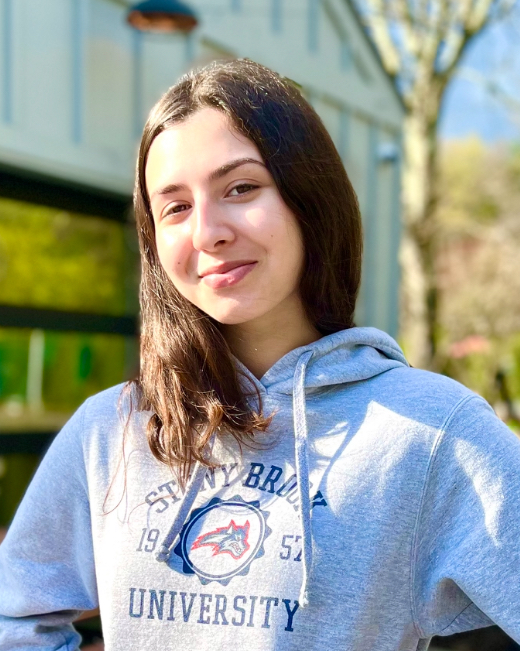Meet our Humanities Research Day 2025 Presenters
Eva Supa
English and psychology double major

Literary Nations, Digital Frontiers: AI and the Making of the National Literatures
of Italy, France, and Spain
Mentor
Giuseppe Gazzola, Department of Languages and Cultural Studies
Our project utilizes Natural Language Processing technology to analyze a range of
18th century European texts on the history of literature. Through this analysis, we
aim to discover thematic connections and contrasting opinions between the scholarly
discourse of European nations, gleaning new insights on European history and identity.
Madison Buddine
history and psychology double major

Historicizing the Safety of Rwanda Bill: Africa and International Refugee Systems
Mentor
Shobana Shankar, Department of History
The Safety of Rwanda Bill, passed in April 2024, is an agreement proposed by the United
Kingdom and ratified by the Republic of Rwanda that declares Rwanda as a safe third
country for the deportation of asylum seekers seeking refuge in the UK. This bill
indicates a concerning global trend on the rise, with leading countries looking to
shift away from refugee responsibility, and countries like Rwanda allowing for exploitation
of refugees by offering a place for their asylum in exchange for monetary compensation.
Historicizing and analyzing refugee trends in Rwanda, as well as the effects of global
interventions on ensuring human rights, offers a greater understanding of the broader
issues at stake regarding international refugee responsibility schemes.
Clark Fischer and Iman Khan
Clark Fisher, computer science
Iman Khan, psychology

The Acquisition and Machine Detection of Emphatic Consonants in Arabic
Mentors
Honaidah Ahyad, Department of Languages and Cultural Studies
This study explores how English speakers acquire and produce Arabic emphatic consonants. What are emphatic consonants? Essentially, Arabic often has two consonants where English only has one. These often cause major difficulties for English speakers. .
This research has implications for second language education, speech recognition, and accent training. Arabic is a surprisingly understudied language, despite there being 500 million L1/L2 speakers, and being an important liturgical language for over 2 billion Muslims. Our work hopefully pushes the boundaries of current research, contributing to a deeper understanding of Arabic phonetic acquisition and advancing the development of more effective language learning tools.
Sara Varghese
English Honors, minor in political science

Salvation is an Unlocked Cell: The Colonial Weaponization of Christianity and Ethnocultural
Isolation of Malayalees in Kerala
Mentor
E.K. Tan, Department of English
The state of Kerala, which Mayalees, people from Kerala, have lovingly named “God’s
Own Country”, is by far the most Christian state in India. However, Indian culture
— fashion, music, film, literature — is more often than not rooted in Hinduism. Since
Malayali Christians find themself in the stark religious minority consistently, they
make an effort to distance themselves from Hinduism and Hindu traditions. Depending
on the denomination, this can range from the decision not to wear jewelry, avoiding
Indian classical music, and abstinence from Hindu holidays. Malayali Christians actively
distance themselves from Hinduism, subsequently separating them from Indian culture
entirely. The intentional separation from Hindu traditions practiced by Malayali Christians
stems from Portuguese missionaries forcing Western Christian orthopraxy upon Malayali
Christians, creating cultural isolation and division from the rest of India. This
phenomenon begs the question: does Christianity’s current presence in Kerala serve
as a vehicle for colonialism to thrive after India’s independence?
Samantha Sanso
English major, writing and rhetoric minor

The Invitational Rhetoric of Vietnam-era Zippo Lighters
Mentor
Shyam Sharma, Program in Writing and Rhetoric
In this essay, I analyze the rhetoric of three Zippo lighters from the Vietnam War
through the framing of invitational/feminist rhetoric. By applying what is referred
to as "offering perspective" to each lighter, I explore how objects of intimacy and
objects of destruction communicate the general feelings of pain, anger and disillusionment
amongst soldiers during this time period.
